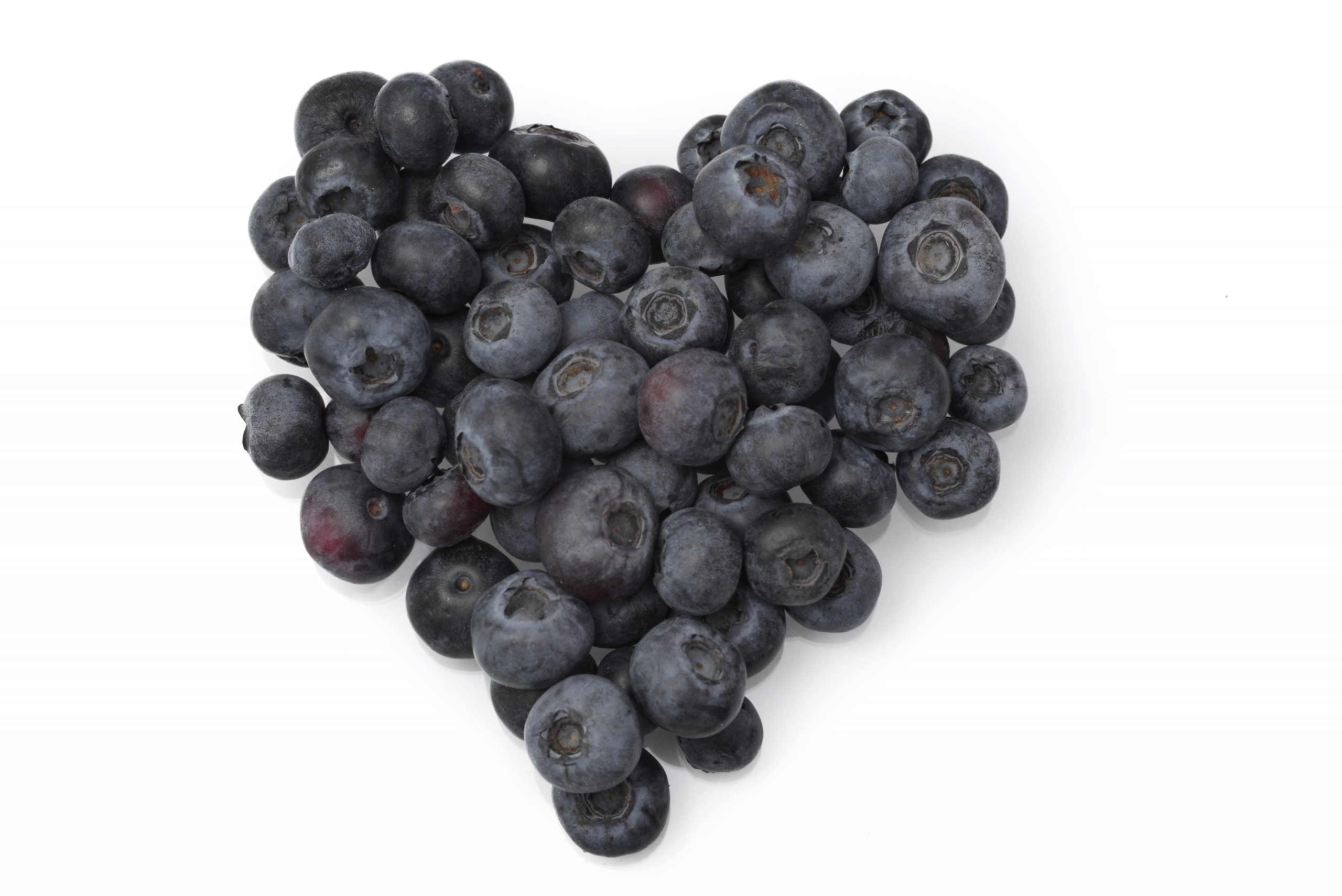There is a special food that has been scientifically proven to be excellent in promoting heart health: Blueberries (Vaccinium angustifolium). Vaccinium angustifolium is also called the Lowbush Blueberry and comes from the Heath family (also known as the Ericaceae family). The Heath family contains over 4,000 species of plants, including the blueberry. They usually grow to no more than 1.5 inch in size and are known for their sweet taste. Blueberries have been identified as a superfood that is packed with antioxidants. Blueberries contain: Vitamin K, four grams of fiber, Manganese, 84% water, 0.4 % fat, Vitamin C, iron, and many other nutrients. Particularly concerning heart health, blueberries are rich in polyphenols including anthocyanins, micronutrients, and fiber, which protect the heart. Anthocyanins is a type of flavonoid and an herb utilized in holistic medicinal practice that is responsible for giving the blueberry its color. Flavonoids promote the regulation of healthy cell activity and ward of free radicals that cause oxidative stress on the heart. Anthocyanins possess anti-inflammatory antioxidant properties that prevent cardiovascular disease. The fiber consumed in blueberries reduces blood pressure levels as well as LDL or bad cholesterol levels. Oxidative stress is the imbalance between free radicals and antioxidants in the body. Accumulation of oxidative stress may result not only in extreme inflammation, but also in chronic diseases, including atherosclerosis.

The intake of polyphenols, by way of consumption of blueberries, protect the heart from coronary heart disease and stroke by decreasing arterial hardness and blood pressure. Blueberries also work to lower LDL oxidation or bad cholesterol. Bad cholesterol is produced in the body when normal LDL cholesterol is damaged by chemical interactions with free radicals. Studies have shown that consuming 150g or 2/3 cup of blueberries daily reduces the risk of cardiovascular disease by 12-15%.
Polyphenols also reduce oxidative damage by refining the flexibility of systemic arteries, and simultaneously increasing the production of good lipids and lipoproteins. Polyphenols also removes harmful fat from the bloodstream and prevents the heart from experiencing heart trauma. Such trauma includes: Lipid peroxidation, total plasma antioxidant capacity, dyslipidemia, and atherosclerosis. Atherosclerosis refers to the toughening of the arteries that results from free radicals attack the blood with inflammatory responses. Lipid peroxidation is best described as a chain reaction of attacks where lipid molecules become so oxidized that they create molecules that will decompose and produce harmful waste in the body.
Blueberries have such a pleasant taste that it should be fairly simple to incorporate them into a daily diet regimen. Raw blueberries can be eaten alone or with yogurt and granola as a snack, or in a smoothie or salad, or even cooked in a healthy crumble or baked in a pastry for dessert.
In essence, the many compounds in blueberries hold many antioxidant properties that work to block the hardening of the arteries, lower LDL bad cholesterol, and promote optimal heart functionality. Blueberries also have a role in the regulation of healthy cell activity and response so to prevent the production of free radicals and waste that create oxidative stress and damage the heart. Blueberries are an essential food that must be incorporated into a heart healthy diet. In order to achieve desired or noticeable results, at least 2/3 cup (up to 1 cup recommended) of blueberries should be consumed on a daily basis.
Helpful Tips
A healthy heart is the main key to overall health of the body. The heart is responsible for pumping hormones and blood to the rest of the body, eliminating waste, preserving healthy blood pressure levels, and producing nutrients and oxygen to the body’s cells. A weak heart can lead to fatal health complications, including but not limited to: kidney damage, thickened heart muscle, coronary heart disease, extreme body inflammation, kidney failure, and congestive heart failure.
It goes without saying that healthy lifestyle habits including daily exercise, maintaining a healthy weight and low body mass index, not smoking, and consuming a heart healthy diet are the main ways to ensure the heart is strong enough to perform at its greatest capacity. Common heart healthy foods that are more popular and regularly advised include: avocados, leafy green vegetables such as kale and spinach, Omega 3 fatty acid, walnuts, and whole grains.
SOURCES USED:
ttps://www.sciencedirect.com/science/article/abs/pii/S0955286305001518
Dr. Casey Sinclair, D.C. is a leading holistic healthcare doctor trained in functional medicine. He has extended his reach around the world by co-founding Family Health Advocacy, a health advocacy group lead by doctors and health professionals providing resources and education on global health matters. He has been fortunate to act as health a consultant to some of the largest companies in North America and as a professional speaker he’s had the privilege of speaking to thousands of people. Dr. Casey is an advocate for people suffering with chronic pain and fibromyalgia and has authored a book on the subject.

